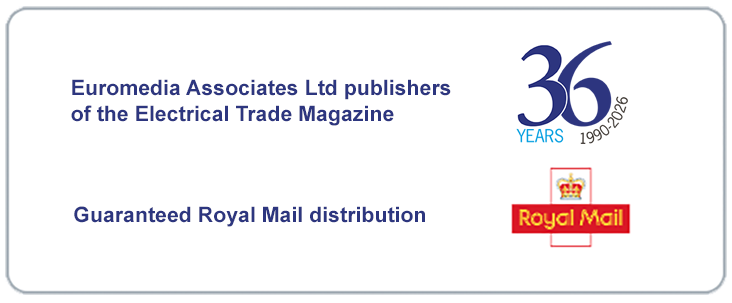Tony Hughes, CEO at sales and negotiation specialists Huthwaite International, advises SMEs on preparing for Brexit.
What is the number one aspect that UK SMEs should consider before Brexit?
SMEs really need to consider how Brexit could impact on their supply chain, and ultimately their business performance. The role of negotiation has never been so important for SMEs. As economies across the globe shift and change, and services that were once highly differentiated are now seen as commodities, deals and supplier relationships require ever greater skill. This naturally has a knock on effect for SMEs, who often find themselves at the end of a very complex supply chain. SME’s must not steer away from their strategic alignment or be put off going for growth because of political uncertainty. Postponing sales or deals could ultimately lead to cash flow issues, which will become harder to rectify as suppliers tighten their belts. Relationships may also become strained as all parties are told to negotiate hard, it Is therefore essential that SME’s take a solid stance particularly due to their position in the supply chain.
What are the three top things SMEs can do to prepare for Brexit?
1. Reassure your team
SMEs should take the reins in terms of developing a strategy pre-Brexit, but it’s vitally important that you include and collaborate with other members of your team as part of this.
Firstly, you won’t be the only one apprehensive about Brexit and what this could mean for the company. Employees across the business will fear what it could mean for the business and more importantly, their future at the company.
Secondly, it will bring in new ideas, creative strategies and approaches that you wouldn’t have thought about if drafting your strategy alone. After all, two heads are better than one.
If you want your team to fully support you and the adapted strategy, allowing them the opportunity to share their insight and ideas will encourage them to buy into the bigger picture It will also inspire staff to take personal responsibility for its success and become fully invested in the end goal. This will prove vital in the predicted hard times ahead.
Including others in the strategy-development process can be challenging and may lead to some disagreements. However, if you choose to be open-minded and courageously confront issues head-on, your strategy will be far more valuable in the long run.
2. Don’t dream too big or too small
It is easy to think of the worst possible outcome when it comes to Brexit, but with the transition period in place, it is just as likely that small businesses could flourish with the possibility of trading with new countries and a new world of potential customers.
Some fantastic, successful ideas have originated from dreams and resulted in inspirational strategies, but it’s important to be realistic and keep overblown fantasies in check. You can reach for the moon, but you also need to make sure that your strategy can actually be executed. What a waste it would be if you were to develop an awesome concept that ends up being shelved because it isn’t strategically viable. 
3. Openly communicate your strategy
Once your strategy is developed, everyone in your company should know about it. Your vision and mission should be clear and easily understood by every team member. However, keep in mind that the key here is not only to have your employees be able to repeat the strategy back to you. But, for them to really understand it and be able to clearly and succinctly explain how it plans out.
Your team should understand the reasoning behind the strategy. They should know the reason behind every decision so that they know there is a real meaning behind your words and the actions they will be expected to take. By ensuring that everyone knows and understands your strategy, you can be more confident that everyone in the organisation will be working together and heading down the same path.
Developing a new strategy, including your team in the planning process, being realistic and ambitious about your end goal and how you’re going to get there, and communicating with your employees are all important aspects of creating a meaningful strategy.
What can UK exporters do to ensure they can still transport to the EU after Brexit?
At the moment we know that trade abroad will be affected in regards to exports, but as this is the first time a country has left the EU under such circumstances, it’s difficult to predict exactly how this will manifest itself. An important consideration however, is that the UK will be given two years to negotiate the details of its exit from the EU.
The best thing for business to do under such uncertain circumstances, is to plan ahead and consider the different potential outcomes. Consider how your company would be impacted by a bilateral trade agreement, or what would happen to your exports if the UK joins the EEA or EFTA.
Until a trade agreement is set in stone, charges, limitations and other considerations won’t come into effect, so small businesses should focus their efforts on future proofing potential scenarios to ensure they are covered whatever the outcome. This include preparing for more expense and time as part of any exportation process.
What can UK SMEs do to protect their supply chain?
Don’t be one-track minded. Anything can happen between now and March 29th, when the UK leaves the European Union. A business strategy shouldn’t work on a guarantee of any kind of deal. A business strategy needs to be adaptable no matter the outcome.
When looking at re-negotiating with existing contracts to protect the supply chain, use Brexit to your advantage. Explain that you are futureproofing your business, which in turn will help to guarantee future custom from your company. Remember, your suppliers will also be concerned by the impact Brexit will have on their business. By negotiating longer-term contracts at discounted rates, your suppliers have the comfort of a longer-term agreement, whilst you can make use of freeing up cash flow through a lower monthly cost.
Of course, your sales team need to be mindful that their customers will also be looking very carefully at the bottom line, so training them in a more flexible sales and negotiation approach, will help them to secure dynamic and compelling deals that are mutually beneficially for both business and supplier.
Huthwaite International, the sales and negotiations experts, train 30% of the Forbes 100. See the website for more details.






